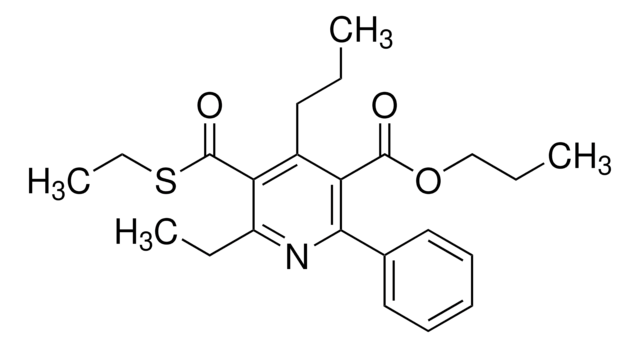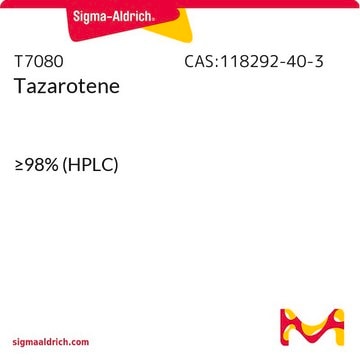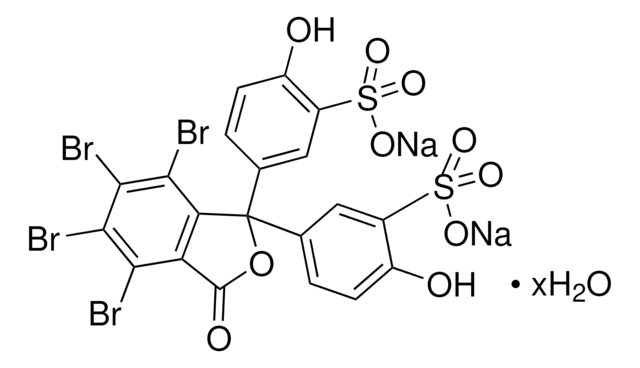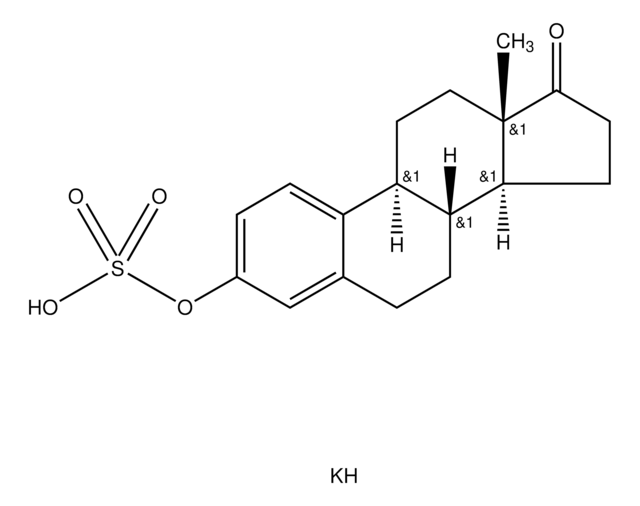SML0486
Elacridar
≥98% (HPLC), powder, ABC transporters MDR-1 (P-gp) inhibitor
Synonym(s):
GF120918, GG918, GW0918, N-[4-[2-(3,4-Dihydro-6,7-dimethoxy-2(1H)-isoquinolinyl)ethyl]phenyl]-9,10-dihydro-5-methoxy-9-oxo-4-acridinecarboxamide
About This Item
Recommended Products
Product Name
Elacridar, ≥98% (HPLC)
Quality Level
Assay
≥98% (HPLC)
form
powder
color
white to beige
solubility
DMSO: 2 mg/mL (clear solution, warmed)
shipped in
wet ice
storage temp.
−20°C
SMILES string
COc1cccc2C(=O)c3cccc(C(=O)Nc4ccc(CCN5CCc6cc(OC)c(OC)cc6C5)cc4)c3Nc12
InChI
1S/C34H33N3O5/c1-40-28-9-5-7-26-32(28)36-31-25(33(26)38)6-4-8-27(31)34(39)35-24-12-10-21(11-13-24)14-16-37-17-15-22-18-29(41-2)30(42-3)19-23(22)20-37/h4-13,18-19H,14-17,20H2,1-3H3,(H,35,39)(H,36,38)
InChI key
OSFCMRGOZNQUSW-UHFFFAOYSA-N
Application
- as a chemical to decipher the link between autophagy and the mechanism of resistance to sunitinib
- as an ATP-binding cassette sub-family B member 1 inhibitor to study its effects on the NSC23766 cytotoxicity
- to treat rhodamine 123 (Rh123) labeled cells to set sorting gates in fluorescence-activated cell sorting (FACS)
Biochem/physiol Actions
Features and Benefits
Storage Class Code
11 - Combustible Solids
WGK
WGK 3
Flash Point(F)
Not applicable
Flash Point(C)
Not applicable
Choose from one of the most recent versions:
Certificates of Analysis (COA)
Don't see the Right Version?
If you require a particular version, you can look up a specific certificate by the Lot or Batch number.
Already Own This Product?
Find documentation for the products that you have recently purchased in the Document Library.
Customers Also Viewed
Articles
Discover Bioactive Small Molecules for ADME/Tox
Discover Bioactive Small Molecules for ADME/Tox
Discover Bioactive Small Molecules for ADME/Tox
Discover Bioactive Small Molecules for ADME/Tox
Our team of scientists has experience in all areas of research including Life Science, Material Science, Chemical Synthesis, Chromatography, Analytical and many others.
Contact Technical Service














